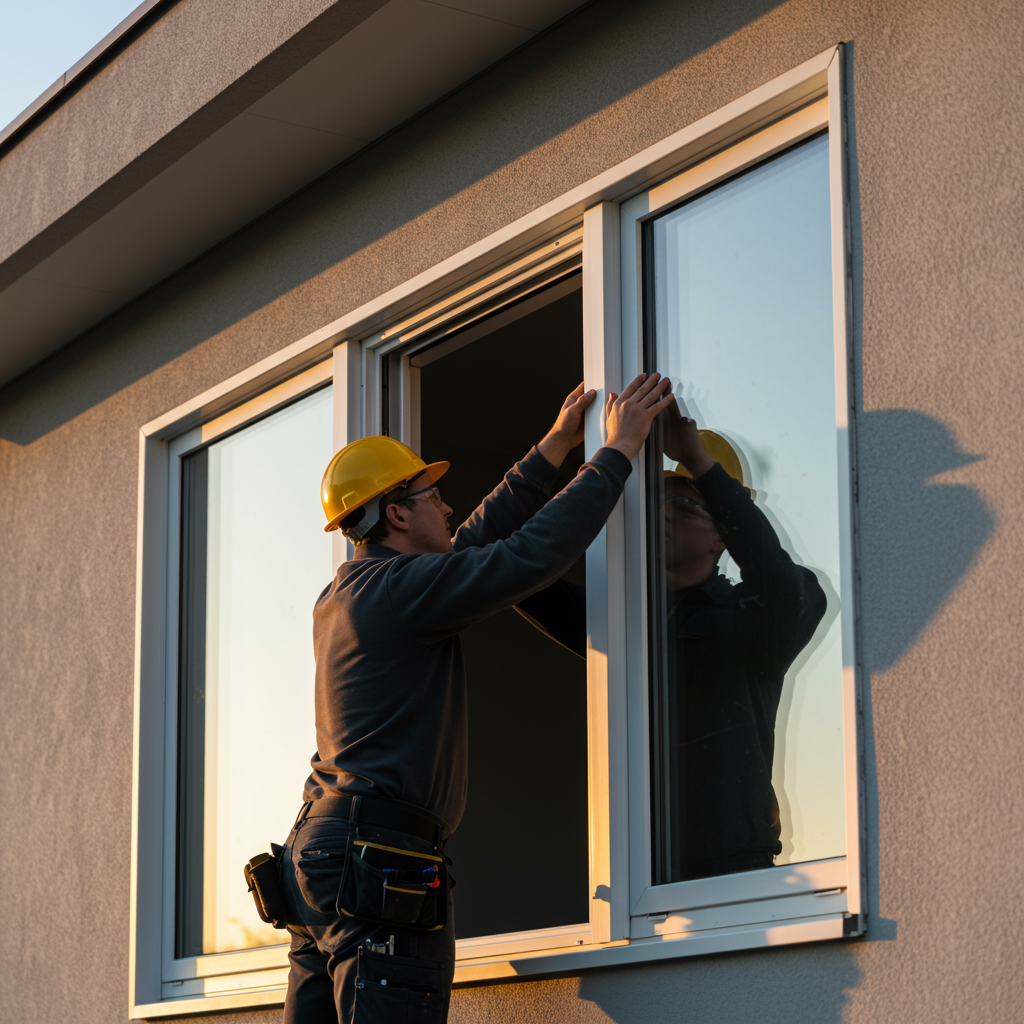
Table of Contents
Introduction
Have you ever wondered how a few strategic upgrades can significantly boost your home’s market value? Whether you’re planning to sell soon or simply want to make your property a more valuable asset for the future, knowing how to improve home value is essential. It’s not just about enhancing curb appeal or modernizing interiors — it’s about making smart investments that pay off both emotionally and financially.
Improving your home’s value matters more than you might think. According to the National Association of Realtors, homes with thoughtful upgrades and improved energy efficiency can demand higher prices and spend less time on the market. Whether you’re a first-time homeowner or a seasoned investor, increasing your property’s value directly contributes to building your net worth. In many cases, homeowners who invest wisely in renovations or enhancements enjoy a more lucrative sale or increased borrowing power when refinancing.
Many homeowners face the common dilemma of deciding which improvements are worthwhile and which renovations deliver the best return on investment (ROI). Should you modernize your kitchen or update your HVAC system? Will adding an outdoor living space attract more buyers? These practical questions are at the heart of maximizing your home’s worth. Moreover, the emotional satisfaction of living in a well-maintained, beautiful space is invaluable — making your home not just a financial asset, but a place of comfort and pride.
It’s easy to feel overwhelmed when considering home improvement projects. How do you balance the cost with potential value gains? What if the market fluctuates or buyer preferences change? Understanding the right improvements in the right order helps avoid common pitfalls and ensures your investment strategy aligns with your financial goals. This is why learning which upgrades truly enhance value and when to sell versus renovate is crucial for every homeowner.
What You’ll Learn in This Guide
This comprehensive guide will equip you with key insights and practical advice on how to improve your home’s value strategically. Here’s what you can expect to learn:
- Smart Upgrade Selection: Discover the top home improvement projects—including interior and exterior renovations—that have the highest impact on market value and buyer appeal. You’ll learn how to modernize spaces effectively without overspending.
- Budgeting and ROI Prioritization: Get practical tips on setting a renovation budget and prioritizing projects to maximize your return on investment. We’ll share strategies to help you balance cost and value gain for the best financial outcome.
- When to Renovate or Sell: Understand how to evaluate whether it’s better to invest in home improvements or sell your property as-is based on market trends, timing, and financial goals. Making the right choice can save you time and money.
- Professional Help vs. DIY: Learn about the benefits and drawbacks of hiring professionals versus doing it yourself. We’ll guide you on when to bring in experts and which DIY projects add meaningful value while keeping costs manageable.
Before diving into specifics, it’s important to understand the real estate investment tax benefits that homeowners can leverage when making value-adding improvements. Knowing the financial incentives and tax implications can further enhance your overall investment strategy and returns.
Throughout this article, we’ll provide detailed guidance on each topic to help you make informed, confident decisions that align with your personal and financial goals. You’ll gain insights on both cosmetic upgrades and structural improvements that appeal to buyers and improve your home’s marketability.
By the end of this guide, you’ll be equipped with a clear plan tailored to your unique situation—a plan that transforms your home into a more valuable, enjoyable, and financially rewarding asset. Ready to unlock your home’s full potential? Let’s explore the key home improvement strategies that can elevate your property value and set the stage for success.

Improving your home’s value is not only about enhancing aesthetic appeal but also making smart investment decisions that can yield significant financial returns. Whether you’re considering selling in the near future or simply want to increase your equity, understanding which home improvements truly boost value is key. This discussion will delve into impactful home improvement strategies and guide you on evaluating when renovations are worthwhile versus when selling might be the better option. By making informed choices, homeowners can maximize their property’s potential while balancing costs and benefits effectively.
Key Home Improvements to Increase Value
One of the most effective ways to increase your home’s market value is through thoughtful and strategic renovations. Upgrading crucial areas of your home can attract buyers, improve livability, and yield a solid return on investment. Interior enhancements like modernizing kitchens and bathrooms often provide the highest payoff, as these spaces are heavily scrutinized by prospective buyers. Additionally, making improvements to your home’s exterior increases curb appeal, which is critical for making a strong first impression. Many homeowners also find that incorporating energy-efficient features appeals to today’s eco-conscious market and reduces long-term utility costs.
Planning and executing these improvements requires balancing your budget and desired outcome thoughtfully. Not every renovation will yield the same value increase, so understanding which upgrades have the greatest impact is essential. It helps to consider trends within your local real estate market, as well as the preferences of likely buyers. To fully grasp this concept, it helps to understand real estate investment tax benefits, which can also play a role in the financial advantages of home improvements.
Key Aspects of Home Improvements
Several critical aspects contribute to the success and value of home improvements. Below are essential factors to consider when planning upgrades:
- Interior Upgrades: Modern kitchens with updated appliances, stylish countertops, and contemporary cabinetry can transform your home. Similarly, renovated bathrooms with modern fixtures and efficient layouts boost comfort and appeal.
- Exterior Enhancements: Curb appeal is vital; landscaping, fresh exterior paint, repaired roofing, and clean pathways draw buyers in. Energy-efficient windows can also enhance both appearance and performance.
- Energy Efficiency Improvements: Incorporating solar panels, upgrading insulation, and installing smart thermostats add value while lowering energy bills. Buyers are increasingly interested in sustainable features.
- ROI Awareness: Allocate budget to projects known for high return on investment, avoiding over-improving for your neighborhood. Prioritize upgrades that increase both functionality and aesthetic appeal.
When to Renovate vs. When to Sell
Deciding whether to invest in home renovations or sell your property as-is depends on several key considerations. Renovations require upfront costs, time, and sometimes considerable effort, but they can substantially raise your home’s resale value and buyer appeal. However, if your home is located in a hot market or needs only minor repairs, selling without major upgrades might be more advantageous. Understanding the balance between renovation investment and expected market gains helps homeowners choose the best path.
Analyzing market conditions, your personal financial situation, and your long-term goals is essential for making this choice. For example, if your home needs significant repairs that exceed your budget, selling might avoid costly losses. Conversely, if improvements are relatively affordable and align with buyer demands, renovations could yield profitable returns. Consulting professionals and conducting a comparative market analysis are practical steps that can inform your decision. For a detailed breakdown of this step, see our guide on how to read financial statements to better understand your investment’s impact.
Important Considerations for Renovate vs. Sell
Key factors to weigh when choosing between renovation and selling include:
- Cost vs. Value: Evaluate estimated renovation costs against potential increase in home value. Projects with high ROI make renovations worthwhile, while expensive, low-impact fixes might not.
- Market Conditions: A seller’s market with high demand can favor selling as-is, whereas a buyers’ market may require upgrades to compete effectively.
- Time Horizon: Consider how soon you plan to sell. If time allows, renovations can enhance value; if selling quickly is necessary, minor fixes might suffice.
- Personal Situation: Assess your budget, risk tolerance, and willingness to undertake renovation projects or manage contractors. Professional guidance can support informed choices.

Conclusion
Improving your home’s value is a powerful way to boost your financial standing and enjoy a more comfortable living space. As we’ve explored, strategic upgrades—particularly in high-impact areas like kitchens and bathrooms—can significantly enhance your property’s appeal and market price. Equally important are exterior enhancements such as landscaping and roof maintenance, which ensure your home makes a positive first impression. Coupled with energy-efficient upgrades like solar panels and smart home technology, these improvements not only attract buyers but reduce utility bills, adding long-term value. Making smart choices based on market trends and your financial goals is crucial to maximizing returns.
Budgeting wisely for home improvements ensures you invest in projects with the best return on investment (ROI). By prioritizing renovations that buyers value most, such as modernizing key rooms or boosting curb appeal, you can avoid overspending on less impactful updates. Understanding when to renovate versus sell as-is—based on local market conditions and your personal timeline—will save you time and money. Simple fixes can be done yourself, but complex tasks often require professional expertise to guarantee safety and quality results. Balancing these approaches helps maintain control over costs while achieving a better outcome.
Additionally, energy efficiency enhancements like upgraded windows and HVAC systems not only increase resale value but often come with tax benefits. Homeowners looking to maximize financial advantages should consider these improvements seriously. For further insight on leveraging tax incentives and optimizing your investment strategy, exploring resources on real estate investment tax benefits can be invaluable. Strengthening your financial literacy through guides such as how to read financial statements also supports better budgeting decisions during renovation planning.
To take actionable steps, start by assessing your home’s current condition and identifying upgrades in areas that deliver the greatest value. Set a renovation budget focusing on key projects aligned with market demand, and weigh the pros and cons of selling as-is versus renovating. Consider integrating energy-efficient features and smart home technologies to appeal to modern buyers. Where feasible, manage do-it-yourself projects like painting and landscaping to reduce costs, but hire professionals for specialized tasks to maintain quality and safety. This balanced approach helps ensure your home improvements truly boost value and your overall investment success.
In closing, improving your home’s value is both a practical investment and a personal opportunity to enhance your living environment. Thoughtful, targeted upgrades based on informed decisions make your home more attractive and secure better financial returns. By combining smart budget management with an understanding of market trends and investor resources, you can confidently transform your property into a valuable asset. For additional guidance and complementary investing tips, exploring best stocks for long term growth and best value stocks to buy now can expand your financial planning horizons.
